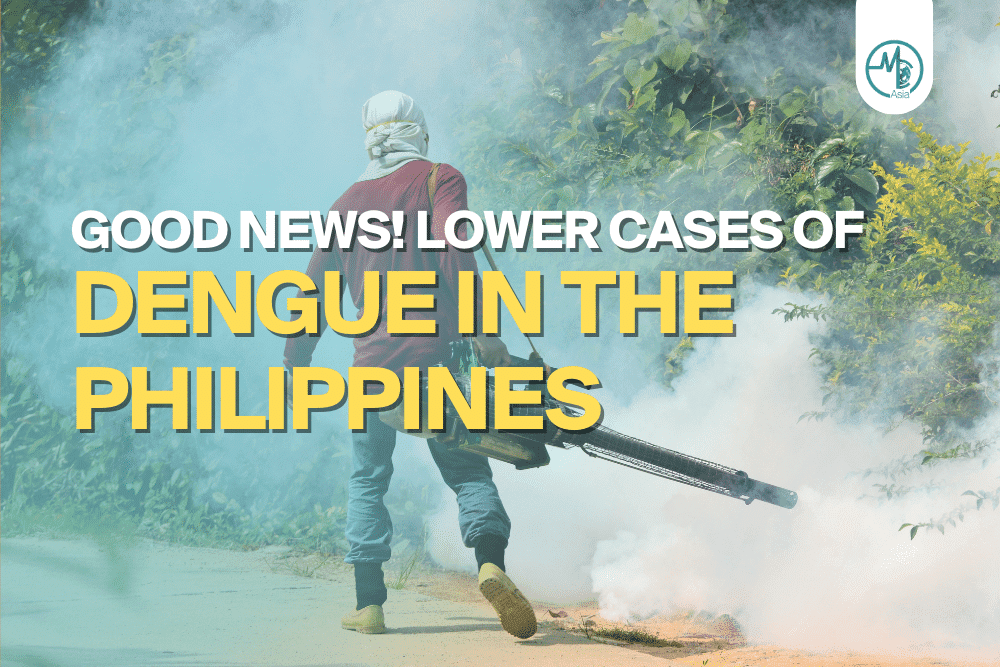The Department of Health (DOH) has recently shared encouraging news about a substantial decrease in dengue cases across the country in the first half of January.
This news offers hope in the continuous battle against the mosquito-borne illness.
The Decline in Dengue Cases: A Sign of Progress
From January 1 to 13, the DOH reported a notable drop. They recorded only 2,024 dengue cases. This marked a significant decline of 24.40 percent compared to the previous reporting period. This positive trend is evident when contrasted with the 7,274 cases reported from December 17 to 31 and the 8,629 cases from December 3 to 16.
However, amidst this decline, the report also underscored the severity of the disease, with 14 reported deaths during the same period, resulting in a case fatality rate of 0.25 percent.
Localised Concerns
Health authorities have issued a cautionary note, acknowledging that these figures may fluctuate due to delayed consultations and reporting. It’s noteworthy that while most regions experienced a decline in dengue cases, Caraga and Soccsksargen regions witnessed an increase, reporting 846 and 645 cases, respectively, raising localised concerns.
Importance of Preventive Measures
Despite the overall decline in dengue cases, the Department of Health (DOH) has underscored the critical importance of maintaining vigilance and strict adherence to preventive measures. This is upheld amidst the persistent threat of dengue, especially with the continuation of the rainy season.
It’s imperative to remain proactive, as stagnant water is often a consequence of improper water storage practices. It provides fertile breeding grounds for the Aedes mosquitoes, the primary vectors for transmitting the dengue virus. Therefore, consistent efforts to eliminate mosquito breeding sites and promote community-wide water management awareness are crucial in curbing the spread of dengue.
Proactive Approach and 5S Strategy
The department’s proactive approach extends beyond public reminders as they continue to advocate for the “5S” strategy: searching and destroying mosquito breeding sites, practising self-protection by using insect repellents, seeking early medical consultation, supporting vector control efforts such as fogging, spraying, and misting in high-risk areas, and ensuring proper hydration.
Rise in Human Rabies Cases
In a related and concerning development, the DOH reported a spike in human rabies cases, with seven incidents recorded in the first half of January. This alarming trend follows an uptick observed since December of the previous year. As a stark reminder of the dangers of rabies, health officials reiterated the importance of pet vaccinations to prevent the spread of this deadly virus.
Continued Commitment to Public Health
As the nation grapples with these health challenges, the DOH remains committed to proactive measures, public education, and strategic interventions to safeguard the well-being of all Filipinos. Through collective efforts and adherence to preventive protocols, communities can mitigate the impact of these diseases and work towards a healthier future for all.
The DOH’s commitment to public health extends to ongoing efforts to dispel misinformation and address concerns surrounding the diseases. Education campaigns, both online and offline, are crucial components of their strategy to ensure that accurate information reaches every corner of the nation. Timely and transparent communication is key to fostering trust and cooperation among the public, encouraging them to participate actively in disease prevention initiatives.
Sustaining Awareness and Collaboration
In conclusion, while the decline in dengue cases is a positive development, the public is reminded that these diseases remain persistent threats. The nation’s health is a collective responsibility, and the DOH’s continued efforts serve as a beacon of hope in the ongoing battle against these health challenges. Filipinos can strive towards a healthier and more resilient future through sustained awareness, proactive measures, and a united front.

